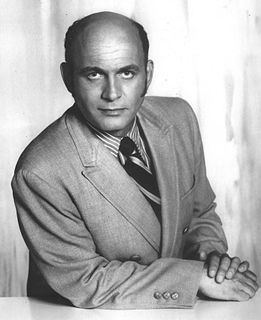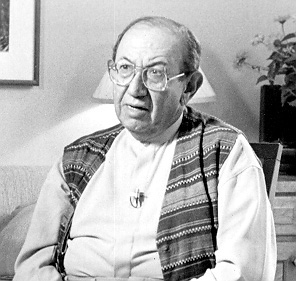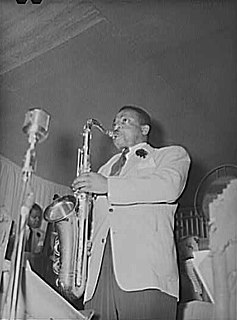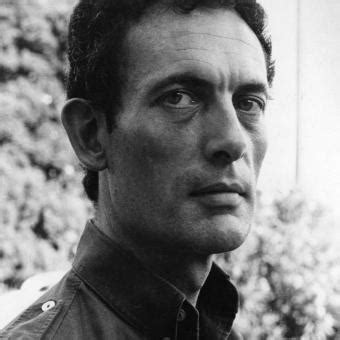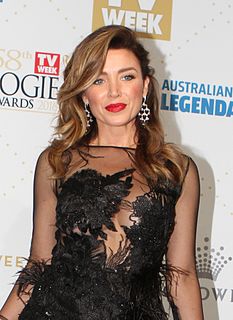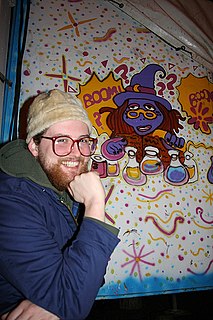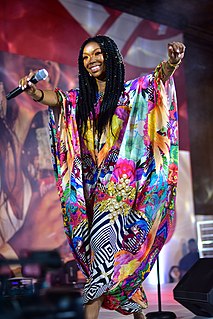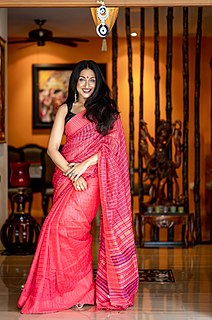A Quote by Gavin MacLeod
We sat down and read it for the first time and I thanked God under my breath, because they were all so good. And my leading ladies are both exceptional. I mean, everybody in the play. I could just go on all night about them.
Related Quotes
I don't care more about '13' because it's in the Olivier than I did about 'Cock' in a 100-seat studio. They both matter because it's still a person sat there watching your play. And the play has to be good enough - because there are a hundred other writers out there who deserve to have their play on instead.
I’m “exceptional”- a democratic term used to avoid the damning labels of “gifted” and “deprived” (which used to mean “bright” and “retarded”) and as soon as “exceptional” begins to mean anything to anyone they’ll change it. The idea seems to be: use an expression as long as it doesn’t mean anything to anybody. “Exceptional” refers to both ends of the spectrum, so all my life I’ve been exceptional.
But after about a year praying, there was just this clear direction. The leadership team believed that God was leading us to focus on fatherhood. If God is leading, then God will provide. So we begin to get storyline ideas that lined up with the subject of fatherhood that we're working on and fitting, and we were thinking, okay this is good. At the same time, as we are studying scriptures and we're on our journey as fathers, we are learning about fatherhood every day.
As a kid, I was a big reader. Books and theater were the way I understood the world, and also the way I organized my sense of morality, of how to live a good life. I would read all night. My mom would come into my room and tell me I had to go to sleep, so I would hide books under my bed. At first I had a tough time getting through novels, so I read plays, because a play is generally shorter and has all those tools for getting people hooked early on.
I used to live at the Cecil Hotel, which was next door to Minton's [Playhouse]. We used to jam just about every night when we were off. Lester [Young], Don Byas and myself - we would meet there all the time and like, exchange ideas. It wasn't a battle, or anything. We were all friends. Most of the guys around then knew where I lived. If someone came in Minton's and started to play - well, they'd give me a ring, or come up and call me down. Either I'd take my horn down, or I'd go down and listen. Those were good days. Had a lot of fun then.
I was composing before I realised I was a composer. It came more or less naturally. There were a couple of old ladies lived next door to me, and I frequented their house more than I did my own, because it had all those marvellous things in that that old ladies do have. And they had a piano, and I used to play around with that; they showed me how to read music and I used to play to them.
I often envy a filmmaker or a playwright or an author where people are like, "Yeah, I sat down every night and read your book and it was beautiful." Or, "Yeah, I went to the movies and all I did was watch the movie because that's all you could do at the movies." Where with music, it's like, "Ugh, I love your music. I listen to it while I'm jogging thinking about how I hate my body." But it is also the privilege of being a musician is you can have your music in this documented form and play it live and that's, I think, what draws me to it the most.
There were always men looking for jobs in America. There were always all these usable bodies. And I wanted to be a writer. Almost everybody was a writer. Not everybody thought they could be a dentist or an automobile mechanic but everybody knew they could be a writer. Of those fifty guys in the room, probably fifteen of them thought they were writers. Almost everybody used words and could write them down, i.e., almost everybody could be a writer. But most men, fortunately, aren't writers, or even cab drivers, and some men - many men - unfortunately aren't anything.
The '90s period I just miss because it was such a great time and the music was just so electric. Everybody just had to bring their A-game back then because everybody that was, you know, a big influence...they were on the charts. I bring that era with me everywhere I go. I care about every word I sing. I care about every move I make on stage. I care about the fans. I bring that with me to the present time. And then, when you're timeless, you can work in any time.
